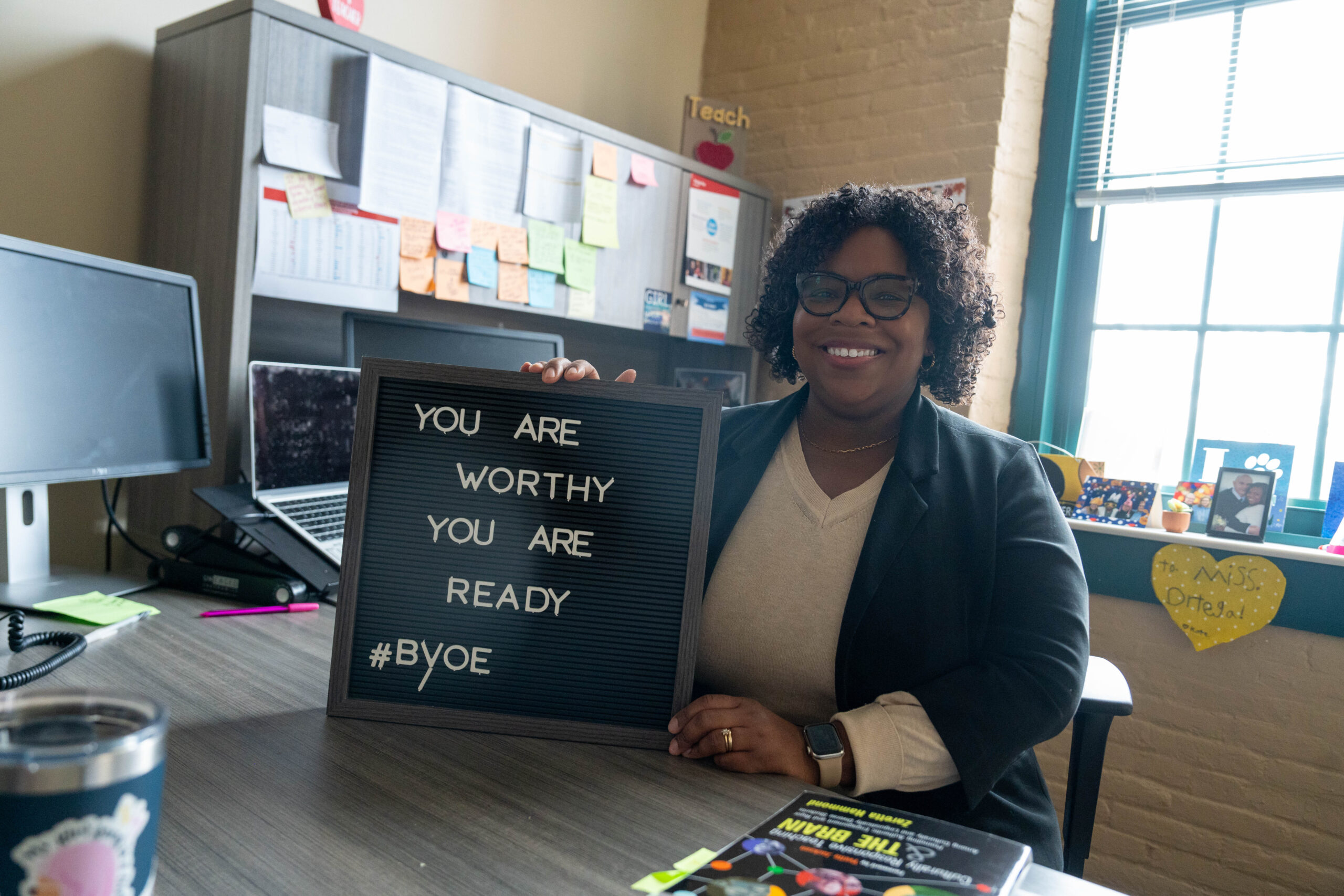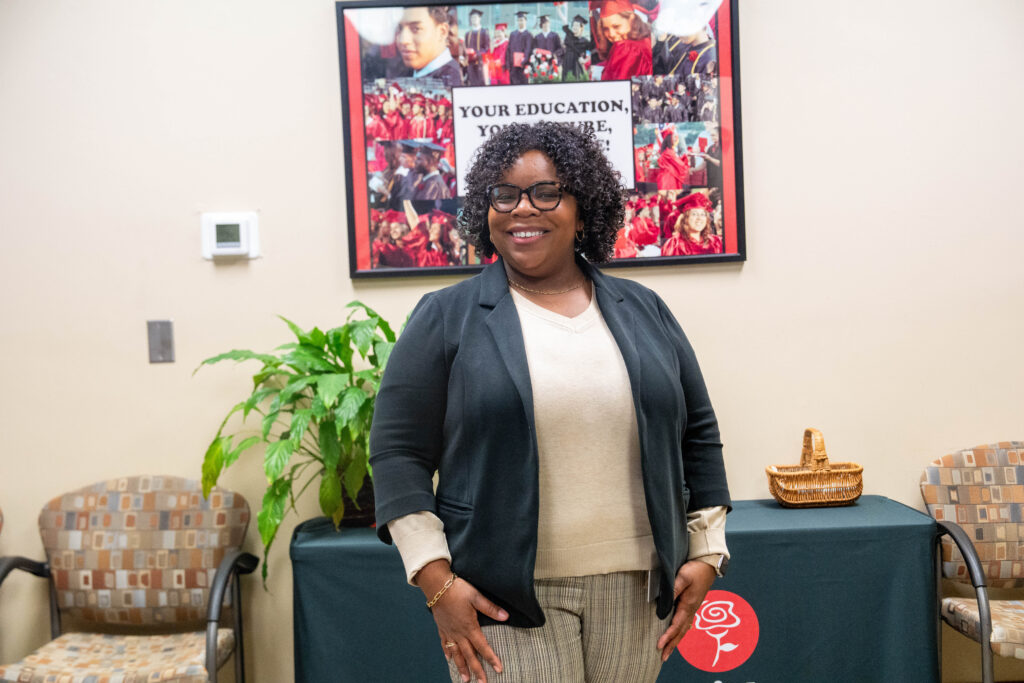
Black History Month is a time to honor the past, recognize the present, and inspire the future. In the School District of Lancaster (SDoL), we celebrate the contributions of Black leaders who are shaping the next generation.
Among them is Christina Ortega, the Instructional Program Manager for Elementary Math and Science in the Office of Curriculum, Instruction, & Assessment. Christina’s work reflects the district’s ongoing commitment to equity, representation, and high-quality education for all students.
Leading the Way in Math and Science
Christina’s role extends beyond managing curriculum. She is a leader, mentor, and advocate for inclusive education. She oversees the implementation of the Bridges Math program and ensures that Pennsylvania’s new science standards are effectively integrated into classrooms.
With a focus on making education accessible and meaningful, she equips teachers with the tools and training needed to provide high-quality instruction. Working closely with instructional coaches, she helps teachers build confidence and expertise in math and science, ensuring that students receive an engaging and well-rounded education.
“I believe that when teachers feel supported, they’re more confident in the classroom,” says Christina. “That confidence translates into better instruction, and ultimately, stronger learning outcomes for students.”
A Commitment to Representation and Equity
Christina’s journey in education began long before her current role. As a student teacher in SDoL years ago, she fell in love with the district’s diverse community. Growing up in East Stroudsburg, Pennsylvania, she was often one of the only Black students in her classes.
This experience shaped her commitment to ensuring that Black and Brown students see themselves represented in their learning environments. She vividly remembers the isolation of being “the only one” and understands firsthand the importance of creating spaces where all students feel seen and valued.
“I remember sitting in class and realizing I was the only Black student,” she shares. “It made me feel like I had to work twice as hard to prove that I belonged. That’s why I’m so passionate about making sure our students never have to feel that way.”
She ensures that representation is not confined to Black History Month but is embedded in everyday learning. By incorporating the achievements of Black scientists, mathematicians, and engineers into the curriculum, she reinforces that diversity in STEM fields is not an exception but a reality.
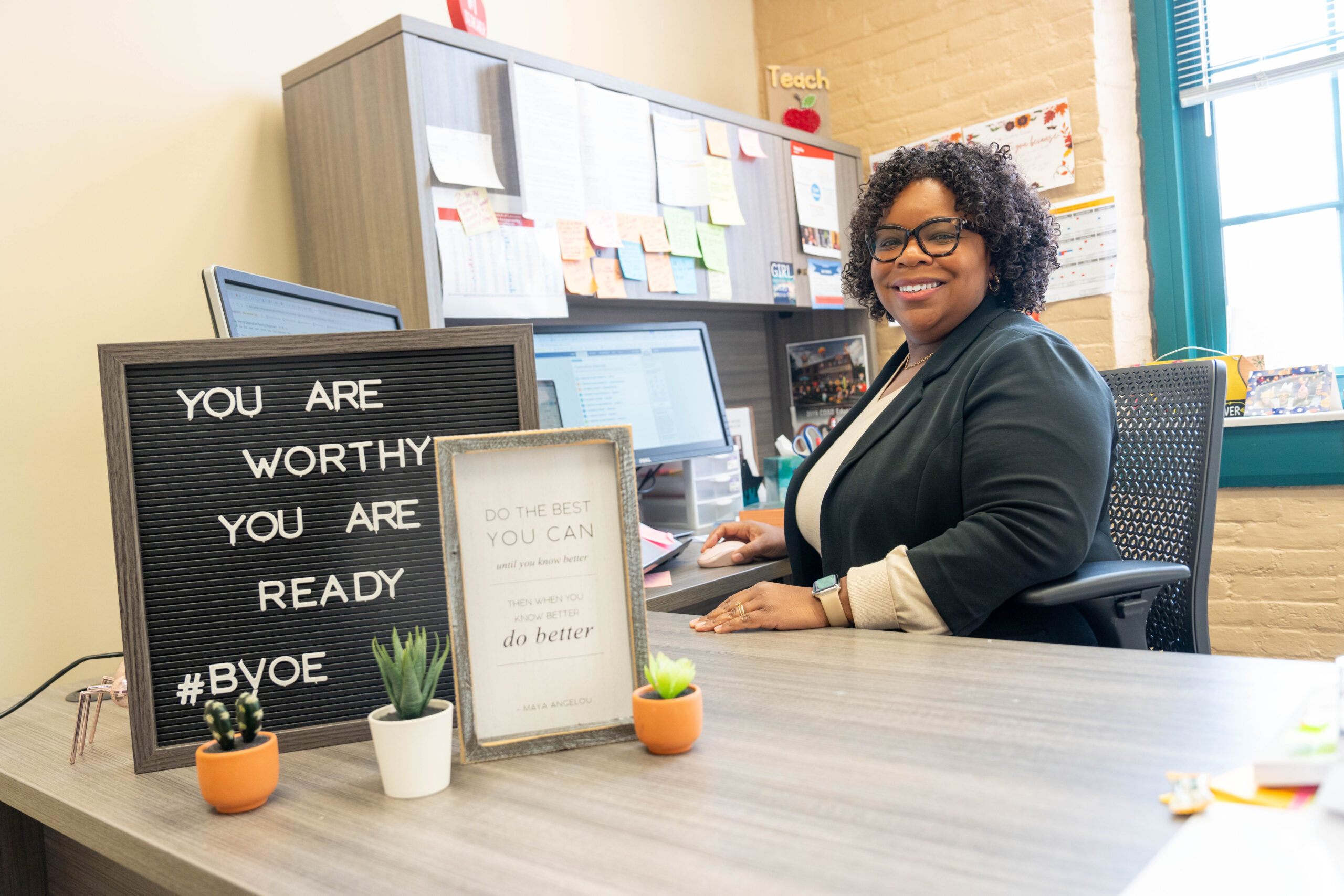
The Power of Representation in Education
“Representation is about more than visibility, it’s about access, opportunity, and empowerment”. Christina works with her team to ensure that students experience robust student centered learning with differentiated support so that they not only see themselves in STEM fields, they have the skills needed to excel in these fields. see a future for themselves in STEM fields. Whether through highlighting Black scientists in the science curriculum or partnering with Thaddeus Stevens College to introduce students to careers in architecture and engineering, she is dedicated to making learning relevant and inspiring.
“When students see someone who looks like them in a field they never considered before, it sparks something,” Christina explains. “It tells them, ‘You can do this, too.’ That’s a message every child needs to hear.”
She believes that students need to see people who look like them excelling in fields that have historically lacked diversity. By making these role models a central part of the curriculum, she fosters a sense of belonging and possibility. She also advocates for community partnerships, bringing in guest speakers, organizing hands-on STEM experiences, and ensuring that students understand these career paths are within reach.
Navigating Challenges as a Black Woman in Education
As one of the few Black women in leadership within the district, Christina understands the challenges of navigating predominantly white spaces. She has faced microaggressions, imposter syndrome, and the constant pressure to prove herself. Yet, she remains committed to amplifying the voices of students and educators who have traditionally been marginalized.
“There have been moments when I’ve been questioned about my qualifications in ways that others haven’t,” she admits. “But I refuse to let that shake me. My work speaks for itself, and I’m here to make sure our students get the best education possible.”
Her message to young Black students considering a career in education is clear: You are worthy. You are ready. You are enough. She encourages them to take up space, to speak with confidence, and to know that their contributions are valuable and necessary.
Honoring the Past and Building the Future
During Black History Month, Christina takes this time to honor the resilience of those who came before her, including her grandfather, Lafayette Hatcher, who overcame tremendous adversity to serve as a master sergeant in the U.S. Army. She also draws inspiration from her great-grandmother, who built a successful beauty business in Philadelphia despite systemic barriers. Their stories remind her that success is not just personal, it is about paving the way for others.
“When I think about what my ancestors went through: the sacrifices they made so I could be where I am today, it drives me,” says Christina. “I don’t take this opportunity lightly.”
She sees her role in education as a continuation of their legacy, ensuring that future generations have the support and encouragement they need to achieve their goals. She actively works to create an inclusive curriculum that honors the past while shaping a future where every child has the resources to thrive.
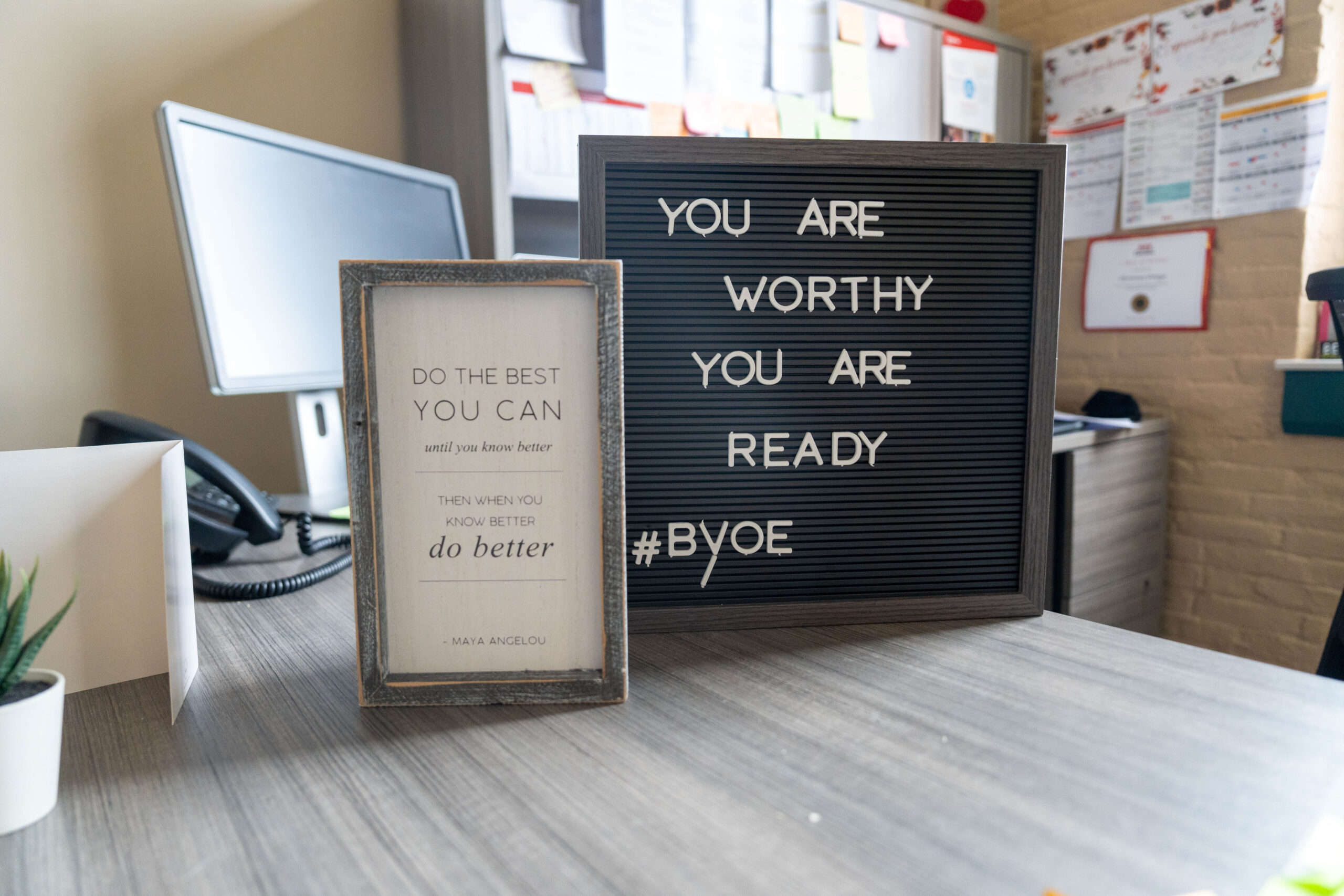
A Legacy of Leadership and Dedication
Christina’s impact in SDoL will be remembered for her high standards and deep compassion. She leads with transparency, ensuring that every decision is made with students’ best interests at heart. She collaborates with colleagues to drive meaningful change and remains committed to providing all students, regardless of background, with an education that empowers them to dream beyond their circumstances.
“I want people to remember that I cared,” she says. “I cared about the teachers, I cared about the students, and I cared about making a difference. That’s what matters most to me.”
Through her work, she is not only improving instructional practices but also fostering a culture of inclusion and opportunity for both educators and students. She is determined to ensure that the next generation has the skills, encouragement, and confidence to step into leadership roles of their own.
Moving Forward with Purpose
As we celebrate Black History Month, we recognize that history is not just something we study, it is something we create every day. The efforts of leaders like Christina Ortega continue to propel SDoL forward, ensuring that diversity, equity, and inclusion remain at the heart of education, giving every child the opportunity to thrive.
Christina’s story is a powerful example of how education can drive meaningful change. Through her leadership, she is actively shaping the future and ensuring that students from all backgrounds see themselves reflected in the curriculum. Her efforts highlight the necessity of representation, the significance of equity-centered leadership, and the lasting impact of fostering an environment where students are inspired by role models who encourage them to pursue their aspirations with confidence.
“My hope is that every child, no matter their background, feels like they belong and that they are capable of achieving great things,” she reflects. “If I can help make that happen, then I’ve done my job.”
